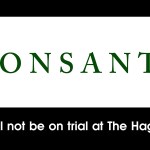
The Hague will not be trying Monsanto for ecocide
Meetings that will occur in the Netherlands are purported to be some kind of trial. Richard takes a closer look in his latest addition to the blog. Are you interested in writing about a science related topic? Then check out…

Stand with Science Communication
The Skepti-Forum Project endorses science communication and values science communicators. As such the former Skepti-Forum Board of Directors drafted a letter in support of Dr. Kevin Folta on November 5. The letter was posted for our members to add their…

On E-mails, Ethics, and FOIA
Controversy surrounding e-mails from scientists are sweeping across the Facebook pages of those following the GMO debate. One of our regular contributors, Richard Green, adds his perspective to the issue. Are you interested in writing about a science related topic? Then…

Myth: UN calls for small-scale organic farming
Iida Ruishalme holds a M.Sc. in Biology from Sweden, has work experience from environmental chemistry, diabetes research, and pharmaceutical bio-bank labs. She lives in Switzerland where she writes both fiction and science. You can follow her at the blog Thoughtscapism….

Nassim Taleb’s False Dichotomy of Top-Down and Bottom-Up Approaches to Farming With Respect to GMOs
Stuart Hayashi has returned to the blog with a treatise on Nassim Taleb’s precautionary principle working paper. Stuart is a freelance writer based in Hawaii. He is the author of The Freedom of Peaceful Action: On the Origin of Individual…

Scientific Literature influencing the Scientific Consensus on GMOs
What is some of the Scientific Literature that has Formed the Scientific Consensus on GMOs?

Monsters versus Mobs: A Call to Unleash the Scientist/Narrator Hybrids
The scientific community and its genetic engineers need to incubate more scientist/narrator hybrids. Scientists need public support, and before the public will support various science projects, the scientific community has to embrace story-telling and creative communication based on enthusiasm, understanding, and compassion. If the scientific community wants public support, scientists need to take sides on public science issues while employing charismatic communicators able to connect with people’s values. Scientists cannot remain isolated while expecting the public to embrace new research. Doing good work is not enough.

Genetically-Modified Narrative Writing: A Few Examples of Narrative Writing Covering GMO Issues
A while back in GMO Skepti-Forum, Marc Brazeau asked for quality examples of narrative writing and the contents of that thread is worth sharing with you all. If you all have some more examples, please let me know, and I’ll add them to our library.

Generically Memeified Organisations
“In the end, if the public is concerned about companies such as Monsanto, rejecting science and shunning scientific reasoning is counter-productive. Controversies within the scientific community are not justification to abandon science, but rather further reason to encourage scientific literacy and reasoning. Not only does the public need to be skeptical of scientific institutions, but also of those who manipulate the public by claiming scientific authority and credibility. Although claimed facts may fit a worldview or ideology, these claims need critical analysis. Condensed forms of media such as memes reduce scientific ideas to commodities, replacing ventures into scientific reasoning; therefore, the public cannot rely on echo chambers and social knowledge, but must have the inclination to question messages analytically. Analogical and empathetical reasoning have advantages, yet neither serves well enough when evaluating scientific claims. Analytical reasoning reveals the deception of fallacious analogies as well as appeals to empathy. Honing analytical tools may be demanding; however, the patience is rewarded with an injection of trustworthy information and a higher immunity to thought viruses.” ~Knigel Holmes

Ken Wood: Lay-Mee-Zay-Rahbl | Pieces of Pi Shared – Science Narratives
“I wanted to be one of those people. I didn’t have the knowledge base that these people had, but I had the desire, and willingness to do hard work, so I jumped on board as a moderator, and started doing my part to help communicate science. It’s only been a year or two, but I’ve already grown, and the future looks bright. Whether I’m seeking out articles to bring to people for discussion, joining in on discussions to ask different questions, bringing evidence to help support or refute claims, searching for new tools and resources, or trying to contact professionals to help join the cause, I really love what I’m doing. It’s fulfilling, and it helps me in so many ways.” ~Ken Wood

Recent Comments